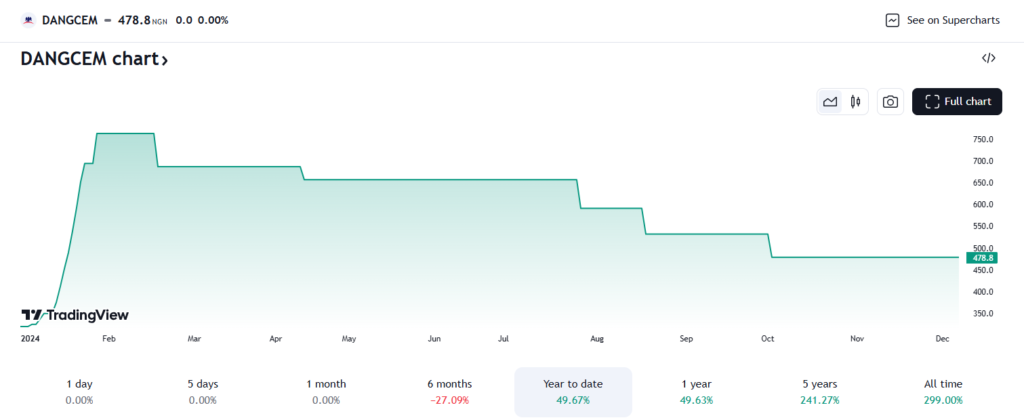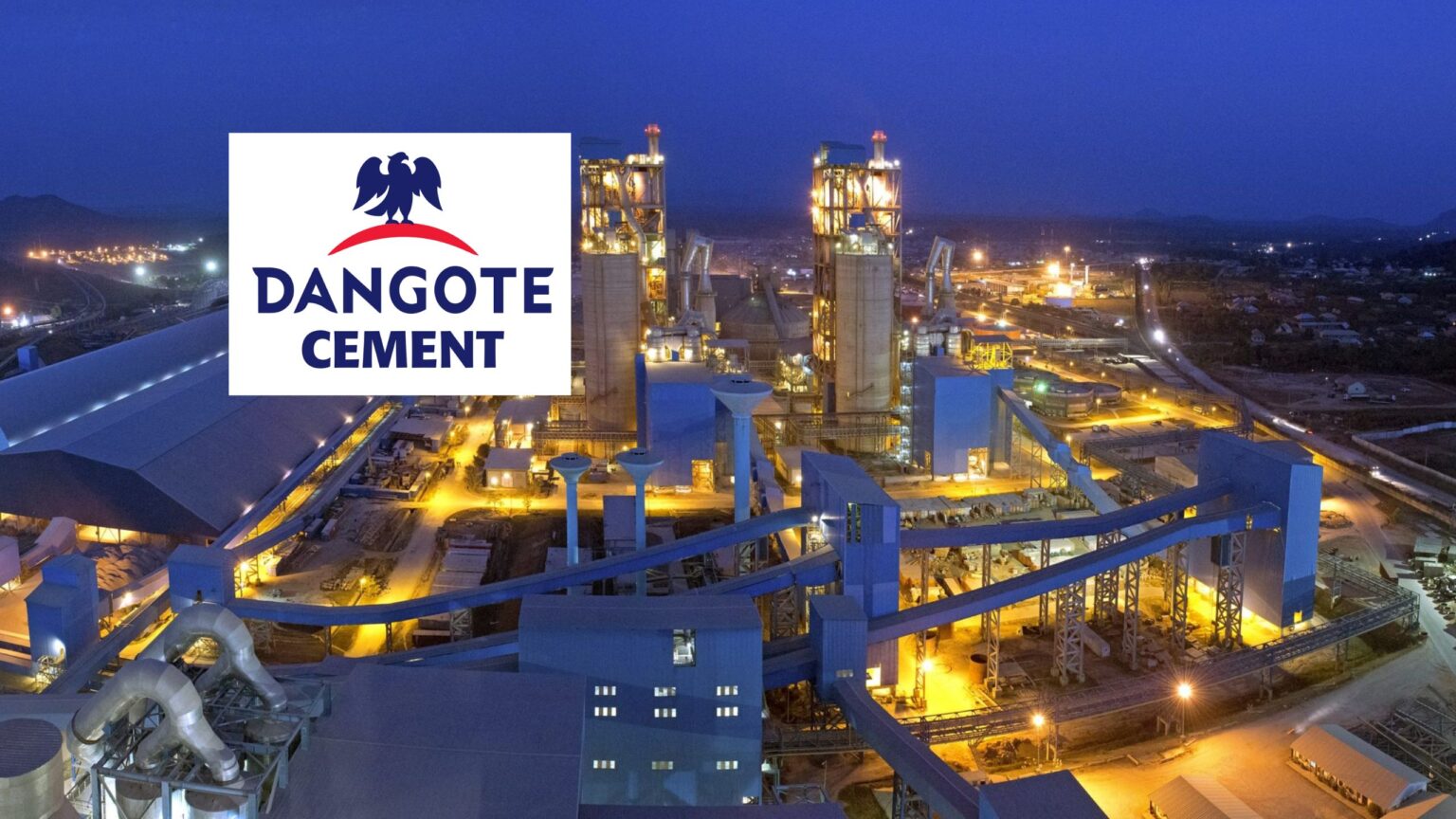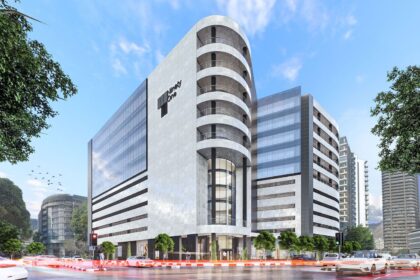At a Glance
- Despite a 49.7% share price rise in naira terms, Dangote Cement’s market capitalization fell $1.02 billion due to currency devaluation.
- President Tinubu’s currency unpeg spurred a 44% naira drop in 2024, boosting forex inflows but raising corporate finance costs.
- Boosted by his $20-billion oil refinery, Aliko Dangote’s net worth soared past $27 billion, securing his spot among the global elite.
The devaluation of the naira has significantly impacted Nigerian businesses, particularly in the manufacturing and industrial sectors. Among the hardest hit is Dangote Cement, Africa’s largest cement producer, owned by the continent’s richest man, Aliko Dangote.
Despite its share price increasing by 49.7 percent this year, from N319.9 to N478.8, Dangote Cement’s market capitalization has declined by over $1 billion, due to the weakening of the naira against the U.S. dollar. This paradox highlights the dual impact of currency devaluation on businesses—gains in local currency terms juxtaposed against losses in dollar valuations.

Naira decline hits corporate valuations
While Dangote Cement’s share price on the Nigerian Exchange (NGX) rose significantly in local terms, securing its spot as the second most valuable company on the local bourse after Airtel Africa, the African operating unit of Indian multinational Bharti Airtel, the impact of currency devaluation is evident when viewed in dollar terms.
Adjusted for devaluation, Dangote Cement’s share price fell by 16.9 percent, from $0.363 to $0.302, dragging its market capitalization down by $1.02 billion, from $6.077 billion to $5.05 billion. However, in naira terms, its market capitalization surged by N2.66 trillion, rising from N5.36 trillion to N8.02 trillion, underscoring the divergence in valuation narratives depending on currency perspective.
The naira’s sharp decline — losing more than 44 percent of its value against the U.S. dollar in 2024 — has been fueled by economic reforms under President Bola Tinubu, who assumed office on May 29, 2023. Key among these reforms was the removal of a long-standing peg that had artificially propped up the naira’s value, unlocking foreign exchange inflows but also exposing businesses with significant foreign debt obligations to increased finance costs.
While these adjustments have strained corporate profits and valuations, they have yielded wins for the government, including the Central Bank of Nigeria (CBN) clearing a $7 billion backlog of inherited foreign exchange obligations, effectively eliminating a lingering financial burden.
Dangote Cement thrives despite rising costs
Amid these challenges, Aliko Dangote’s business empire demonstrated resilience. Dangote Cement, Africa’s largest cement producer with a capacity of 52 million metric tonnes annually and operations in 10 countries, reported a robust financial performance.
Revenue for the first nine months of 2024 surged by 69 percent, rising to N2.56 trillion ($1.56 billion) from N1.51 trillion ($919.1 million) in the same period of 2023.
This growth, largely driven by pan-African operations benefiting from currency translation gains, helped offset rising operating and finance costs, leading to a modest net profit increase to N279.1 billion ($170 million), up from N277.5 billion ($168.9 million) in 2023.
Aliko Dangote’s wealth surges past $27 billion
Aliko Dangote’s overall fortune also rebounded after an initial slump earlier this year. His $20-billion Dangote Oil Refinery, inaugurated in May 2023, propelled his net worth above $27 billion, securing his position among the world’s 70 richest individuals and reinforcing his status as Africa’s wealthiest man.
Dangote Oil Refinery, the world’s largest single-train oil processing plant, is poised to transform Nigeria’s energy landscape by reducing reliance on costly fuel imports.
Challenges persist, however, as disputes over crude supply and pricing threaten to undermine progress. With much of Nigeria’s oil production locked in long-term contracts, Dangote has been compelled to procure foreign crude at a premium—an arrangement that complicates the refinery’s operations.
Despite these hurdles, Dangote’s strategic investments in cement production and oil refining underscore his ability to adapt and thrive. These ventures not only solidify his empire’s role as a cornerstone of Nigeria’s industrial and economic growth but also highlight its resilience in navigating an increasingly challenging economic landscape.





